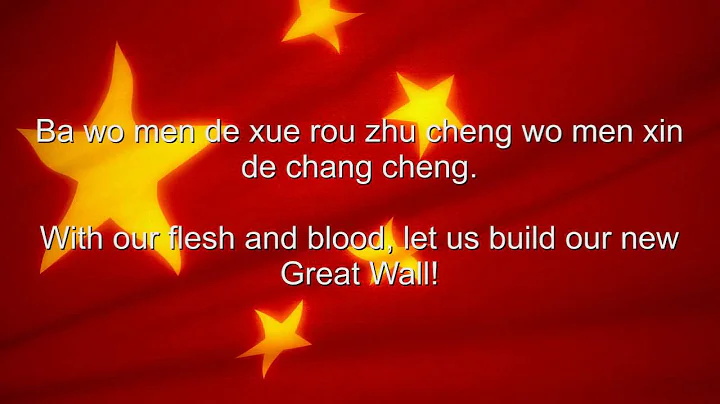
Chairman Mao said: "Thousands of martyrs have sacrificed heroically in front of us for the benefit of the people. Let us hold their flag high and march on their bloodstains!"

"Life in Beacon"
4. During the War of Liberation
14. Attacked southern Shaanxi and established a new base area
In September 1947, the Lushi Battle ended. Commander Chen Geng immediately telegraphed Chairman Mao Zedong. Chairman Mao was very pleased to hear the good news. In accordance with Chairman Mao's instructions, Commander Chen Geng telegraphed our department to take advantage of the victory to advance into southern Shaanxi and establish a new revolutionary base area, and issued a general order to commend our department.
Southern Shaanxi is located on the back of the two major battlefields of northwest Hubei and the Central Plains, and has an important strategic position in the military. Our army's attack on southern Shaanxi can force Hu Zongnan to deploy troops from Guanzhong to defend the Ankang front line, disperse their forces, and reduce the pressure on our army's battlefield in northern Shaanxi.
htmlOn September 19, our brigade and the 17th Division continued to move westward and arrived in the Shangluo area of Shaanxi. On the 27th, our unit occupied Longju Village . After the troops entered the city, the soldiers wrote slogans on the walls to promote our army's policies. The commanders and fighters strictly enforced mass discipline, and social order in the town was quickly stabilized. Shops were open for business as usual, and people brought tea and water to welcome our troops.
After our troops occupied Longju Village, they cut off the West Jing Highway in the middle, directly threatening the security of Hu Zong's southern flank. The enemy quickly reorganized the 65th Division by air from Wuhan to reinforce the area in an attempt to prevent our troops from continuing to advance. On October 1st, our regiment occupied Guanyazi, an important town on the Xijing Highway; on the 2nd, our regiment captured the Wuli Archway on the outskirts of Shangnan County; in the early morning of the 3rd, we liberated Shangnan County. The point of the sword was devastating, the Kuomintang's reactionary troops were defeated one after another, and our army's influence was huge. During the autumn rains, the water in Danjiang River surged, making it impossible for our army to cross the river and march south. In order to avoid fighting an uncertain battle, our unit returned to the Wulichuan and Zhuyangguan areas of Lushi County to rest and standby.
During the break, the brigade leaders conveyed Commander Chen Geng's four instructions to all commanders and fighters: First, they were very satisfied with the results achieved by our brigade after crossing the Yellow River . The second is to require our ministry to carry forward the spirit of "breaking the cauldron and sinking all boats", vigorously advance into southern Shaanxi and northern Hubei, and open up base areas in southern Shaanxi. In this way, it was like inserting a steel knife into the back of Chiang Kai-shek and lighting a fire in Hu Zongnan's crotch, leaving the enemy in a hurry and unable to take care of himself. Third, after Hu Zongnan mobilizes troops to southern Shaanxi, our department will be in a very difficult situation. We must be fully mentally prepared and prepare for the worst. We must fight against the Danjiang River with the spirit of breaking the cauldron and sinking the boat. We are only allowed to enter and not to retreat. Fourth, the 12th Brigade troops are capable of fighting, have a glorious history, and have rich experience in independent operations and establishing base areas. I believe that the comrades can complete this major and arduous strategic task.
At this time, local leading cadres also came to the army. Together with the army leaders, they carefully analyzed the geographical environment, enemy situation and mass base of the Hubei-Shaanxi border base area, and studied the deployment of establishing the Hubei-Shaanxi border base area. Everyone unified the guiding ideology and then conveyed it to the entire brigade and local cadres.

Then, the troops quickly made ideological and material preparations for opening up the new area.
On October 15, army cadres intensively studied the "Outline of the Land Law" and conducted training and education on how to mobilize the masses, organize and establish local armed forces, and establish local political power. The
troops formed working teams and went deep into villages such as Wulichuan and Maoerping to mobilize the masses to fight against landlords and divide their fields.
html On the 17th, the Brigade Headquarters held a political work meeting to study and deploy how to carry out political and ideological work after advancing into the Hubei-Shaanxi border area and mobilize the masses to establish a revolutionary base. Tan Youfu, director of the brigade's political department, made a report on rectifying discipline and implementing policies. Zhang Kui, the head of the local underground party, introduced the local " soldiers' important geography, ", customs and conditions.At the same time, the army organized military training and political education, mainly: carrying out discipline and settlement education, carrying out the education of "fighting well, observing discipline well, and consolidating the army", carrying out military training activities, and intensifying the training of new soldiers.After the training, the morale of all the officers and soldiers was high, and they were like sharp arrows on strings, ready to go at any time.
To be continued...
Follow Luoning City Affairs
Read the exciting content of the next issue
4. During the War of Liberation
15. Establishing the Hubei-Shaanxi border base

About the author: Shan Zi , born in 1950, Luoning County , with a college degree, had a military career and served as squad leader, platoon leader, and political instructor. After changing careers, he served as deputy township head and deputy director of the County CPPCC Office. He loves literature. In 1996, he began to publish essays, poems, and novels in magazines and newspapers. .

About the author: Yang Xiaohu, male, from Jingyang Town, Luoning County, born in 1947, is a first-level teacher in secondary school.





















